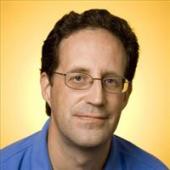Facebook Cuts Organic Reach As It Promotes AdsFacebook Cuts Organic Reach As It Promotes Ads
Facebook makes it tougher for posts to brand pages to reach a wide readership. At the same time, it plays up "sponsored stories" advertising. Deliberate or coincidence?
October 4, 2012


6 Ways iPhone 5, iOS 6 Amp Up Social Opportunities
6 Ways iPhone 5, iOS 6 Amp Up Social Opportunities(click image for larger view and for slideshow)
The ability of businesses to reach people on Facebook without paying for advertising has dropped in the past month, as some brand marketers say they've seen the organic reach of their posts cut in half.
The first alarm was raised in a blog post by Geoffrey Colon, VP of digital strategy for Social@Ogilvy, a division of ad agency Oglivy & Mather, who called attention to a change in the EdgeRank algorithm Facebook uses to determine the placement of stories in the news feed. "The crux of the change is centered strictly on organic brand page posts, in an effort to de-clutter the amount of posts served up to mobile and tablet users by brands. The change comes at a time when Facebook is trying to maximize the amount of paid advertising it has on the platform, in an effort to bump its share price after a struggling stock share post-IPO," he wrote.
This change comes as Facebook has begun promoting "sponsored stories"--posts that get a boost in the rankings, for a price--as a revenue source and key to its mobile strategy and has begun offering the separate promoted posts for individual users.
"Facebook usually tinkers with the algorithm on a weekly basis, but this is the first time the change has been made in an effort to minimize brand page posts being seen by those who have opted in to 'liking' that page," Colon continued. "While Facebook says this isn't to penalize brand pages, and that engagement shouldn't be affected, it does make one wonder if they are experimenting with the algorithm to serve up more sponsored stories in the newsfeed, as users interact with Facebook more on mobile devices." Colon went on to give advice on the type of stories still likely to gain attention organically, such as those featuring images or videos rather than text and links only.
Jeff Doak, the social platform director at Team Detroit, amplified the warning, writing that "with no warning and no explanation by Facebook, your brand page may have just lost half of its value."
Although admitting that it might be too soon to draw sound statistical conclusions, he said, "I pulled data from a number of pages I have access to, and all of them show a sudden decrease in reach starting on September 21, ranging anywhere from a 24% to a 63% decrease (averaging out to around 45%) in average organic reach when compared to the previous two months. And that page that had a 24% decrease has a huge fan base, so that percentage translates into 100,000 fewer fans, on average, seeing each post."
[ Read Judge Denies $20 Million Facebook Sponsored Stories Settlement. ]
Colon did not respond to an interview request. Doak's blog carries the standard disclaimer about his views not necessarily reflecting those of his employer or clients. Through a spokesman for the firm, he declined an interview request. On Thursday, Doak tweeted the Wall Street Journal blog post on promoted posts for individuals and small advertisers as "more evidence that Facebook has lost its way."
An analysis by EdgeRank Checker confirms that something has changed, although not by as much as Doak found. "People always scream the sky is falling, all the time," Chad Wittman, founder of EdgeRank Checker, said in an interview. However, when he saw respected figures such as Colon saying they were seeing a big change, he decided it was worth checking on. The EdgeRank Checker service provides additional analytics for the data provided by the Facebook Insights reporting tool.
Out of a sampling of about 3,000 brand pages, there were 332 that saw an increase in organic reach since Sept. 20, but the rest were not so lucky, Wittman said. "A vast majority lost out on that change and a small minority have improved on it," he said.

Analysis by EdgeRank Checker shows a sampling of pages lost approximately 6.5% of their reach after Sept. 20.
On average, the organic reach of posts declined 25%; viral reach--exposure through sharing of posts--declined 45%; and engagement decreased 17%. Another metric, virality, increased 7%. Because Facebook defines virality as a measure of content quality, that "seems to suggest the quality of the content was roughly the same (or was able to engage people who saw it)," Wittman said.Facebook doesn't seem to have made any formal announcement of a change. Wittman said page owners have told him their advertising representatives have communicated with them about it, mostly to assure them that the site engineers were seeking to boost the relevance and quality of each user's feed, not to extract more ad dollars.
"Personally, I don't believe they want to turn the screws on everybody and make more money--although I wouldn't put it past them--but I think it's probably a supply-and-demand thing," Wittman said. That is, as the number of brand advertisers on Facebook has grown, the service has had to tune its algorithms to prevent users from being overwhelmed by commercial messages, he said.
Wittman said he tends not to buy into conspiracy theories about Facebook's motives, although he added that the latest move on promoted stories "is very suspect--when I see things like that, it makes me second guess myself."
Wittman said he will have a better understanding of what's changed once he is able to make month-over-month comparisons, rather than comparing one week to the next. However, his initial take is that Facebook is sharpening its focus on providing the greatest reach to the most engaging posts--leaving the less-engaging ones to fade into the background.
The brand advertisers who became active early on Facebook were spoiled by the free advertising they got through Facebook pages, Wittman said. The evolution Facebook is going through mirrors Google's pivot from initially focusing on providing the best natural search result to any query to introducing search advertising -- also keyed to the search keywords, but more visible because it was paid for. "I think the similarities are too close for it to not happen like that," he said.
"Organic search results are amazing if you can get them on your own," Wittman said, but if you want a #1 ranking for a search like "New York lawyer" you're going to pay a search engine optimization consultant, pay for advertising, or both. Similarly, his analysis did show some pages actually gaining reach under the new algorithm, so those who can figure out the right formula for "really amazing content" may still be able to reach those they want to reach for free. The rest will have to reach for their wallets.
Follow David F. Carr on Twitter @davidfcarr. The BrainYard is @thebyard and facebook.com/thebyard
Social media make the customer more powerful than ever. Here's how to listen and react. Also in the new, all-digital The Customer Really Comes First issue of The BrainYard: The right tools can help smooth over the rough edges in your social business architecture. (Free registration required.)
About the Author
You May Also Like




